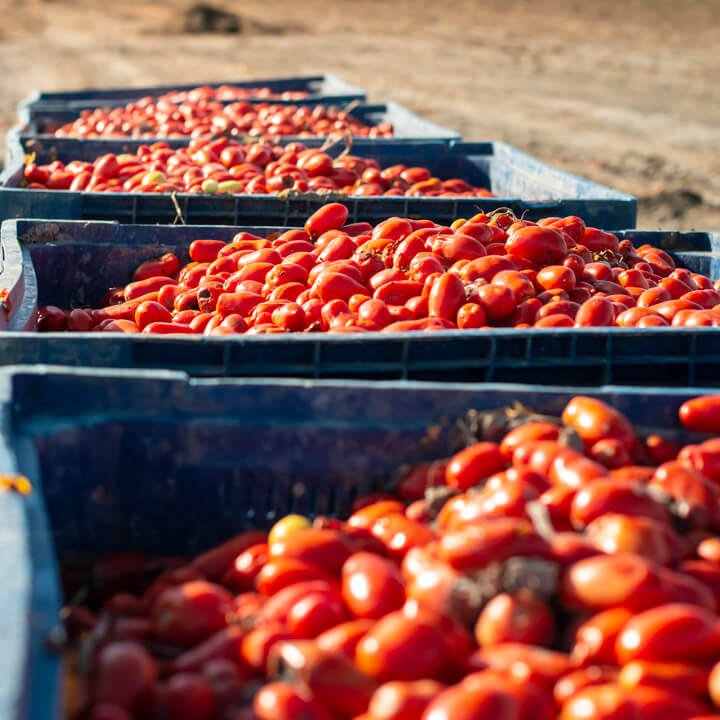Animal welfare – are fast-growing chickens illegal?
20th December 2024
“The Humane League UK and the RSPCA have failed to persuade the Court of Appeal to overturn a May 2023 decision of the High Court in which the High Court rejected their claim against the Secretary of State for Environment, Food and Rural Affairs (Defra). The claim was that Defra had misapplied animal welfare law and maintained unlawful policies and practices, including a policy of non-enforcement in relation to the welfare of broiler (meat) chickens.”

In this article, we’ll be looking at an appeal which has recently been heard by the UK Court of Appeal. The appeal examines important and sensitive issues relating to animal welfare and how the law applies to fast-growing breeds of broiler (meat) chickens. We’ll explain:
- What the legal challenge is about.
- Why it matters to you.
- What you should be doing about it.

What’s the legal challenge about?
This was a challenge in the Court of Appeal about fast-growing broiler chickens and whether it is lawful to farm them in England. The Humane League and RSPCA maintain that fast-growing chickens suffer a range of health and welfare challenges including leg, heart and other developmental disorders. The case reference is R (on the application of the Humane League UK) v Secretary of State for Environment Food and Rural Affairs
The Humane League UK and the RSPCA invited the Court of Appeal to overturn a decision of the High Court in which the High Court rejected their claim against the Secretary of State for Environment, Food and Rural Affairs (Defra).
The High Court claim, decided in May 2023, was a claim for judicial review (see box below which explains what a judicial review is) in which the Humane League and the RSPCA argued that Defra had misapplied animal welfare law and adopted unlawful policies and practices, including a policy of non-enforcement. The High Court rejected those arguments and dismissed the claim.
The Court of Appeal has now dismissed the Humane League and the RSPCA’s appeal.
What legal error is Defra supposed to have made?
The Humane League and the RSPCA argue, in essence, that Defra has got the law wrong because it has misunderstood the following legal provision contained in the Welfare of Farmed Animals (England) Regulations 2007:
Animals may only be kept for farming purposes if it can reasonably be expected, on the basis of their genotype or phenotype, that they can be kept without any detrimental effect on their health or welfare.
What do the Humane League and RSPCA say?
The Humane League and RSPCA said, essentially, that the provision is a condition which a farmer must fulfil before they can rear a fast-growing broiler chicken. They claim that the provision involves assessing ordinary commercial farming conditions and whether the broilers suffer under those conditions. If the broilers do suffer detrimental effects to their health or welfare under those conditions, then they cannot be kept for farming purposes.
The Humane League and the RSPCA also said that, because Defra misunderstood this provision, Defra had gone on to adopt policies and procedures, including a code of practice, which fail to properly protect animal welfare.
What did Defra say?
Defra, on the other hand, argued that the provision was not about farming conditions at all. Defra said, in essence, that the provision was about breeding. In Defra’s view, the provision prevents the keeping of animals bred in such a way that they will inevitably suffer detrimental effects on their health or welfare, regardless of the conditions in which they are kept. Defra said that broiler chickens come nowhere close to that. Defra also said that while it is possible to imagine a situation in which genetic factors lead to inevitable detriment – a chicken bred with no legs, for example – that was not the case, here. Defra also said that the health and welfare challenges associated with fast-growing breeds are of the same kind as those presented by slower growing breeds.
Defra claimed that an RSPCA report, which formed a significant part of the court case, does not properly explain the underlying science relating to these matters. Defra said that the conclusions which the RSPCA reached in the report were not supported by the scientific evidence upon which the report was said to be based. In Defra’s view, these challenges can be met by on-farm environmental adjustments in the same way as with slower growing breeds. This meant that the provision – which is about inevitable detriment – does not apply.
Defra added that any assessment of whether the provision is engaged at all has to come after all applicable husbandry, stockkeeping and other environmental measures have been employed and are shown to be incapable of preventing a detrimental effect on the animal’s health or welfare. Defra said that the Humane League and RSPCA are wrong to suggest that the provision is a pre-condition to the keeping of farmed animals.
In support of Defra’s position, the National Farmers Union (NFU) (who joined the case as an interested party), argued that the use of the word “phenotype” in the legislation is a powerful pointer towards Defra being right about the meaning of the provision. The NFU said that the notion of phenotype involves an examination of how a particular animal behaves through interaction with its environment. The wording of the provision therefore implies that it looks beyond the question of ordinary commercial farming conditions and targets detriment which occurs irrespective of any conditions in which it might be possible to imagine the animal being kept.
What did the Court of Appeal decide?
The Court of Appeal dismissed the appeal.
Put briefly, the Court held that Defra was correct to say that the provision is a prohibition on the keeping of farmed animals whose genotype and phenotype mean that, regardless of the conditions in which they are kept, they cannot be kept without detriment to their health or welfare.
However, the Court made clear that that was not the end of the story. The Court said that there was a difference between detrimental characteristics inherent in a breed and which couldn’t be addressed by changing the conditions in which the animal is kept, and those which could be. This might mean that – depending on scientific conclusions (about which there is current scientific disagreement) – there could be cases where fast-growing broiler chickens could not be kept without breaching the legal provision contained in the Welfare of Farmed Animals (England) Regulations 2007.
In terms of whether the provision applies before or after the point at which a farmer chooses the breed of chicken to keep, the Court made clear that the provision is a prohibition (on keeping a farmed animal), subject to a proviso (unless it can reasonably be expected that it can be kept without detriment to its health and welfare).
Why it matters to you
While the Court of Appeal’s judgment will be greeted with relief by many farmers and producers, the judgment leaves open the possibility that, in certain cases, animal welfare law is breached by keeping animals whose genetics make them prone to injury or illness. Much depends on the science. In this appeal, the Court did not have the benefit of any expert evidence to help them reach any conclusions about what the science shows. But that might change in the case of future challenges, which seem certain to materialise.
We expect Defra to respond to the Court’s judgment by reviewing the framework for farming of fast-growing breeds and perhaps to make the government’s expectation about welfare measures for such breeds more explicit in the various codes of practice which relate to the farming of commonplace species. There may also be intensified enforcement activity on the part of official veterinarians, the Animal and Plant Health Agency (APHA) and local authorities.
What should you be doing about it?
The impact of breeding and selection techniques on productivity and animal welfare will continue to be a sensitive issue. For producers, we recommend that you consider your current animal welfare measures and assess how far they comply with the codes of practice which affect your livestock. The codes contain references to the main animal welfare legislation which governs your operations as well as useful information which will help you to ensure that your animal welfare measures remain aligned with that legislation
How we can support you
We have significant experience of advising food producers on the legal framework governing products of animal origin, to include white and red meat producers of all sizes and types. This experience extends to cover animal welfare matters, advice as to producers’ wider legal obligations, and regulatory risk mitigation. We would be happy to assist you with any of these matters, or related food and animal welfare law issues, at any time.








